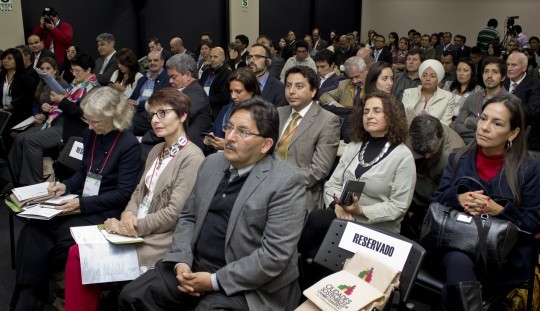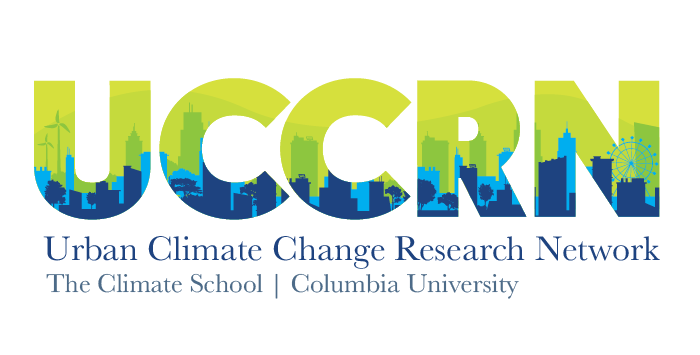The Urban Climate Change Research Network's (UCCRN) key initiatives focus on research, collaboration, and knowledge-sharing.

Assessment Report on Climate Change and Cities (ARC3). The ARC3 report series represents a collaborative effort with authors from cities in developed and developing countries around the world. The reports are the first-ever global, interdisciplinary, cross-regional, science-based assessment to address climate risks, adaptation, mitigation, and policy mechanisms relevant to cities. The assessment articulates urban climate risk frameworks and climate science for cities and derives policy implications for key urban sectors—water and sanitation, energy, transportation, public health—and the systemic issues of land use and governance.
Currently, UCCRN is in the writing and editing stages of the third edition of the assessment (ARC3.3). ARC3.3 will be published as a series of reports in 2023 - 2024. Each report will focus on a key facet of the conversation about urban climate change, including nature-based solutions, urban planning and design, data and the role of technology, and climate governance, among others.
To learn more about the ARC3.3 author nomination process, visit the ARC3.3 Author Nomination page.
UCCRN Regional Hubs. UCCRN’s has transitioned to leadership for global climate action through its proactive Regional Hubs.
The goal is to transition from a report-focused organization to one that leads a global, sustained city-focused climate change knowledge and solutions program through its proactive Regional Hubs.
UCCRN strengthens ongoing collaborations and knowledge exchange both for and with cities of various sizes on all continents.
The focus of the Regional Hubs is on conducting world-class research and applying it to mitigation and resilience planning.
The Hubs operate at the continental scale and link knowledge to action with tools such as the Case Study Docking Station. Input from the UCCRN Regional Hubs advances the ARC3 urban climate assessment and action framework, enabling UCCRN to update the ARC3 report series regularly with ties to urban decision-makers worldwide.
City Projects and Collaborations. UCCRN develops linkages among city decision-makers and researchers from developing and developed countries on the critical topics needed to advance the knowledge base for urban mitigation and adaptation solutions. UCCRN collaborations help to translate climate change research for non-scientific audiences, accelerating and improving policy action at the city-level.
UCCRN's Urban Design Climate Workshops (UDCWs) aim to integrate and scale-up climate change mitigation and adaptation in cities through knowledge sharing, collaboration, and action planning. The goal of the UCCRN Urban Design Climate Workshops is to develop implementation actions together that take into account governmental, developmental, socio-economic, and ecological conditions.
Case Study Docking Station. The ARC3.2 Case Study Docking Station (CSDS) is designed to inform both research and practice on climate change and cities by enabling initial scientifically valid cross-city comparisons and analysis across a range of social, biophysical, cultural, economic, and political contexts. This leads to new possibilities and pathways of case study research for climate change and cities. Over 115 city case studies are included in the CSDS, covering topics such as vulnerability, hazards and impacts, mitigation and adaptation actions, and sector-specific themes such as wastewater and flood management. The CSDS database builds upon the first and second ARC3 reports and plans for the ARC3.3 CSDS are in development.
Engaging Students and Scholars. UCCRN seeks to promote the development of the next generation of urban climate change researchers and planners. The network hosts undergraduate, graduate, doctoral students, and visiting scholars working on urban climate change topics through engagement in research visits, meetings, conferences, and events year-round.
Peer Reviewed Articles and Publications. Through UCCRN, new, local-level, city stakeholder-driven research is being undertaken, resulting in peer-reviewed journal articles. UCCRN fosters linkages among researchers from developing and developed countries on the critical topics needed to advance the knowledge base for mitigation and adaptation solutions in urban areas. These co-authored peer-reviewed articles are available for citation in the IPCC report and ARC3 assessments and reports.
To read UCCRN’s published research, visit the Publications page.
To learn about how you can get involved in the network, visit the Join UCCRN page.
